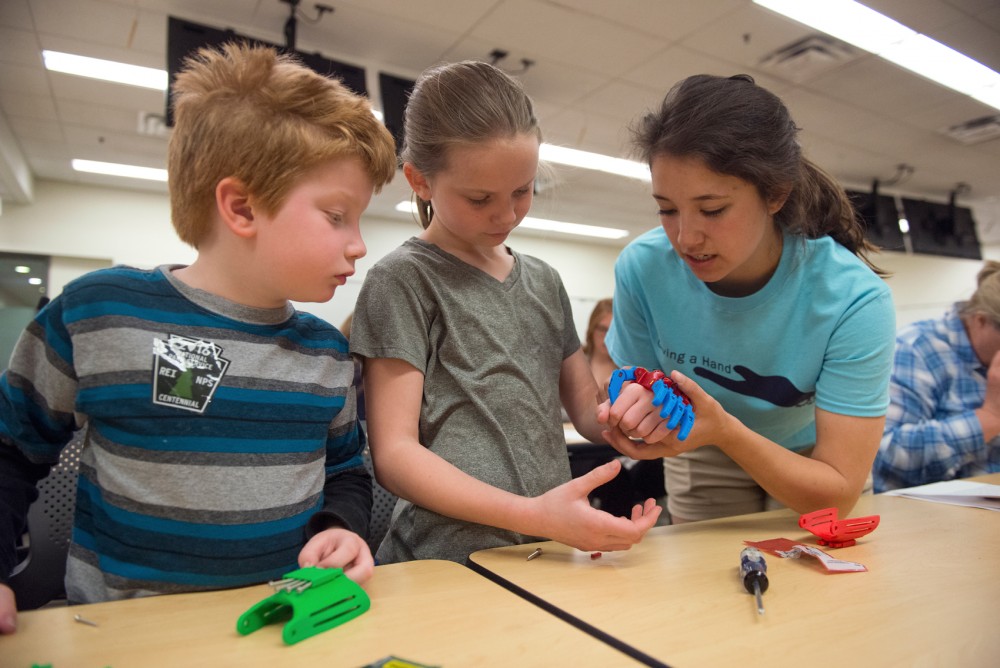A group of University of Minnesota students is lending a hand to others — not through charity work but by exporting prosthetics across the globe.
Engineering World Health, a University student organization, started editing open-source designs for 3D-printed prosthetic hands in March and will donate its first batch to recipients in Tanzania and Honduras by the end of the month. They began printing 16 devices last week, which will be split evenly between the two countries.
The fledgling group’s mission to create technology that directly improves people’s lives is the product of collaboration with a Honduran exchange student, Melvin Cruz, said Hana Boudlali, the group’s vice president.
Engineering World Health and Cruz are now developing an electronic prosthetic that can grasp objects, Boudlali said. The device’s electrodes connect to the bicep and send open or close commands when they sense flexing muscles.
Cruz said he became interested in 3D printing when a friend of his needed a prosthetic hand. He struggled to learn about the technology from his home university, he said.
“[In Minnesota], I’m taking the 3D printing class, and we don’t even have books in our class because technology is developing so fast,” Cruz said. “Within that idea, I’m taking the project home to my country.”
Normally, prosthetics cost about $10,000, he said. But with 3D printing, they can be built for as little as $60.
To be comfortable and workable, the device’s socket — the area connecting prosthesis to person — requires individual specializations, said Andrew Hansen a rehabilitation science professor.
“What typically happens in a prosthetics clinic is a clinician will try and make a custom socket for [a patient’s] individual limb,” he said. “This interface between the prosthetic device and the person, it’s where the customization really has to come in.”
He said 3D printing could make it easier to tailor the prosthesis to a specific person. Although, it may not be as conducive to mass production as traditional methods are.
Cruz said that the project is not the end of his work, and he’s formed a foundation with other Honduran students around the U.S. to bring the technology to Central America.
The foundation’s goal is to build a network of printers and organizations that help people with their disabilities over their lifetime, Cruz said.
“Once you help someone, it’s not a client; it’s not a user; it’s a family,” Cruz said.


